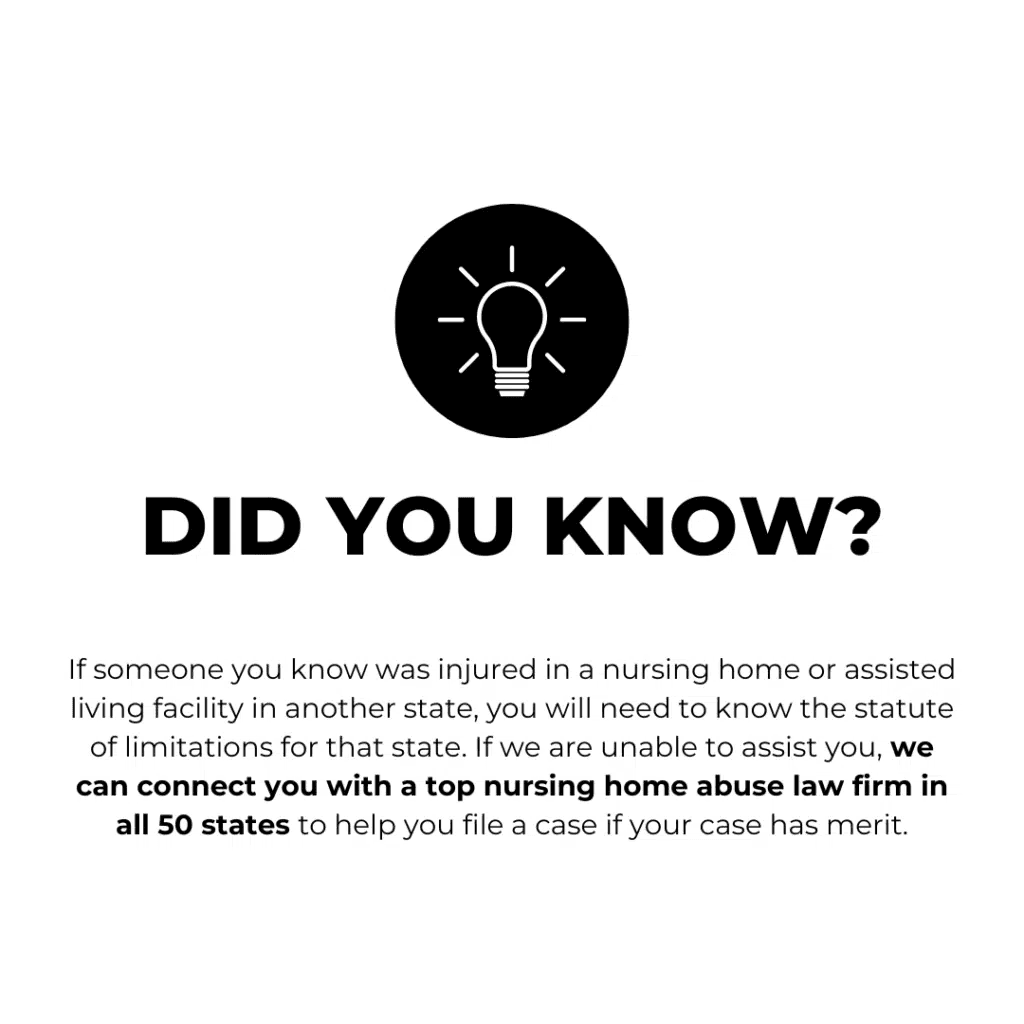
Nursing home abuse and neglect put vulnerable residents at serious risk, leading to malnutrition, dehydration, infections, and preventable injuries. When facilities fail to provide adequate care, residents suffer, and families are left feeling helpless. Lack of supervision, improper medical treatment, and unsafe conditions can result in devastating harm. Understanding the warning signs, knowing your legal rights, and holding negligent facilities accountable are crucial steps in protecting your loved ones. Learn how to take action and seek justice.
November 5, 2024
3 min
In nursing homes, the health and well-being of residents hinge on one crucial tool: the resident care plan. These comprehensive, individualized documents guide caregivers in meeting each resident’s unique medical, emotional, and social needs. By outlining the necessary steps to ensure personalized care, resident care plans enhance the quality of life for nursing home residents and safeguard against neglect and abuse. In this article, we explore what makes these care plans so essential and how they play a vital role in preventing the kinds of neglect that can lead to malnutrition, bedsores, and other harmful conditions.
A resident care plan is a fundamental tool in nursing homes, designed to address each resident’s unique needs. It’s a carefully crafted document that provides a detailed overview of a resident’s health status, medical treatments, personal preferences, and overall care requirements. A resident care plan guides healthcare providers, caregivers, and nursing home staff, ensuring that all aspects of a resident’s well-being are monitored and met.
Unlike one-size-fits-all approaches, resident care plans are highly personalized. Each plan is built around the individual, factoring in their physical health, emotional needs, dietary restrictions, and social preferences. The purpose of the care plan is not just to maintain the resident’s health but to improve their quality of life. By focusing on the person as a whole, care plans ensure that residents receive the proper care at the right time, which is essential in environments where many individuals require daily and complex assistance.
A typical resident care plan is extensive, covering multiple aspects of a resident’s care. The most common components include:
This detailed level of planning ensures that each resident’s unique requirements are addressed. Whether they require assistance with simple tasks like brushing their teeth or need complex medical interventions, the care plan provides a roadmap for caregivers to follow.
The importance of resident care plans cannot be overstated. Nursing homes often house individuals with diverse and complex needs, ranging from chronic illnesses to physical disabilities and cognitive impairments. A personalized care plan allows caregivers to provide tailored services beyond primary care, ensuring the resident’s well-being is fully supported.

In addition to improving care, resident care plans play a vital role in preventing nursing home neglect and abuse. Abuse can take various forms, including physical, emotional, sexual, or financial abuse, while neglect involves the failure to provide adequate care, resulting in harm or risk of harm to residents. Both abuse and neglect in nursing homes can have devastating consequences for residents, often leading to physical injuries, psychological trauma, and a decline in overall health and well-being.
Neglect in nursing homes often results from disorganization or an inadequate understanding of a resident’s needs. A resident care plan eliminates much of this risk by providing a clear, structured outline of the care required. When caregivers have a detailed plan to follow, they are far more likely to provide the necessary services consistently and appropriately.
For example, many nursing home residents have chronic health conditions like diabetes, hypertension, or heart disease. These conditions require close monitoring and regular medical attention. A care plan outlines the frequency of check-ups, medications, and any necessary treatments. It can also highlight warning signs that staff should look for, ensuring that any issues are caught early and promptly addressed.
Malnutrition and dehydration are common signs of neglect in nursing homes, often stemming from inadequate attention to residents’ dietary needs. A resident care plan specifies the type of nutrition required, ensuring that meals are tailored to their health condition. For instance, a resident with diabetes will have a plan that includes a specific meal schedule and the appropriate types of food.
The care plan may also account for residents who have difficulty swallowing (dysphagia) or need assistance with feeding. Caregivers are then equipped with the knowledge to ensure the resident is adequately fed and hydrated, significantly reducing the risk of malnutrition or dehydration, which can lead to severe health complications.
Bedsores, or pressure ulcers, are a significant concern for bedridden or immobile residents in nursing homes. These injuries occur when residents are not moved or repositioned frequently enough, causing prolonged pressure on the skin. Bedsores are not only painful but can lead to infections and other serious health issues.
A well-constructed care plan addresses this issue by outlining the specific repositioning schedule for each resident. For residents with limited mobility, the plan will detail how often they should be turned in bed and the type of support (e.g., cushions or special mattresses) they need to prevent pressure on vulnerable areas of the body. With this plan in place, caregivers can prevent bedsores before they develop.
Medication management is one of the most critical aspects of nursing home care. Errors in medication administration—whether it’s giving the wrong dose, missing doses, or administering medications at the wrong time—can have severe consequences, especially for older adults with complex health conditions.
A resident care plan specifies the exact medications a resident should be receiving, along with the dosage, timing, and method of administration (e.g., oral, injection, or topical). This attention to detail significantly reduces the likelihood of medication errors. It also ensures that caregivers can track any side effects or interactions between medications, alerting them to potential problems before they escalate.
Residents in nursing homes often experience changes in their health or behavior due to various factors, including illness, medication changes, or emotional distress. A well-designed care plan outlines how caregivers should monitor and respond to these changes.
For example, a resident who begins to exhibit signs of depression or anxiety may require additional emotional support or therapy. The care plan will guide staff in recognizing these symptoms and providing appropriate interventions. Similarly, for residents with dementia or Alzheimer’s, the care plan may include strategies for managing agitation, confusion, or wandering, which are common challenges in such cases.
Resident care plans also serve an essential function in protecting residents from abuse and neglect from a legal perspective. If a resident suffers from neglect or inadequate care, the care plan can act as evidence of what should have been done versus what was provided. This documentation is crucial in legal proceedings, such as nursing home lawsuits, where the failure to follow the care plan can be used to establish negligence.
When a care plan is not followed or is insufficiently updated, the nursing home is vulnerable to legal action. Families should be vigilant in ensuring their loved one’s care plan is comprehensive and up-to-date, as this is often the first line of defense against neglect or abuse.
Resident care plans are far more than administrative documents—they are a crucial lifeline for the well-being of nursing home residents. These personalized plans not only ensure that medical, emotional, and social needs are met, but they also serve as a powerful tool in preventing nursing home neglect and abuse. By providing detailed guidance for caregivers, resident care plans foster a higher standard of care and offer legal protection for residents and their families.
Families should actively engage in the care planning process to ensure that their loved ones receive the best possible care, and nursing homes should prioritize regular updates and thorough implementation of these plans to safeguard against neglect and maintain accountability.
Michael Hill is a nationally recognized attorney who handles exclusively cases against long term care facilities. Michael and his firm, Michael Hill Trial Law, are headquartered in Cleveland, Ohio but handle cases across the country.
Disclaimer: This information is provided for informational purposes only. Nothing in this article should be construed as providing legal advice or the creation of an attorney client relationship. Laws are updated frequently and change from state to state. If you desire legal advice, you can contact Michael Hill Trial Law at www.protectseniors.com, send an email to info@protectseniors.com, call (800) 659-2712 to begin an investigation, or contact another attorney.